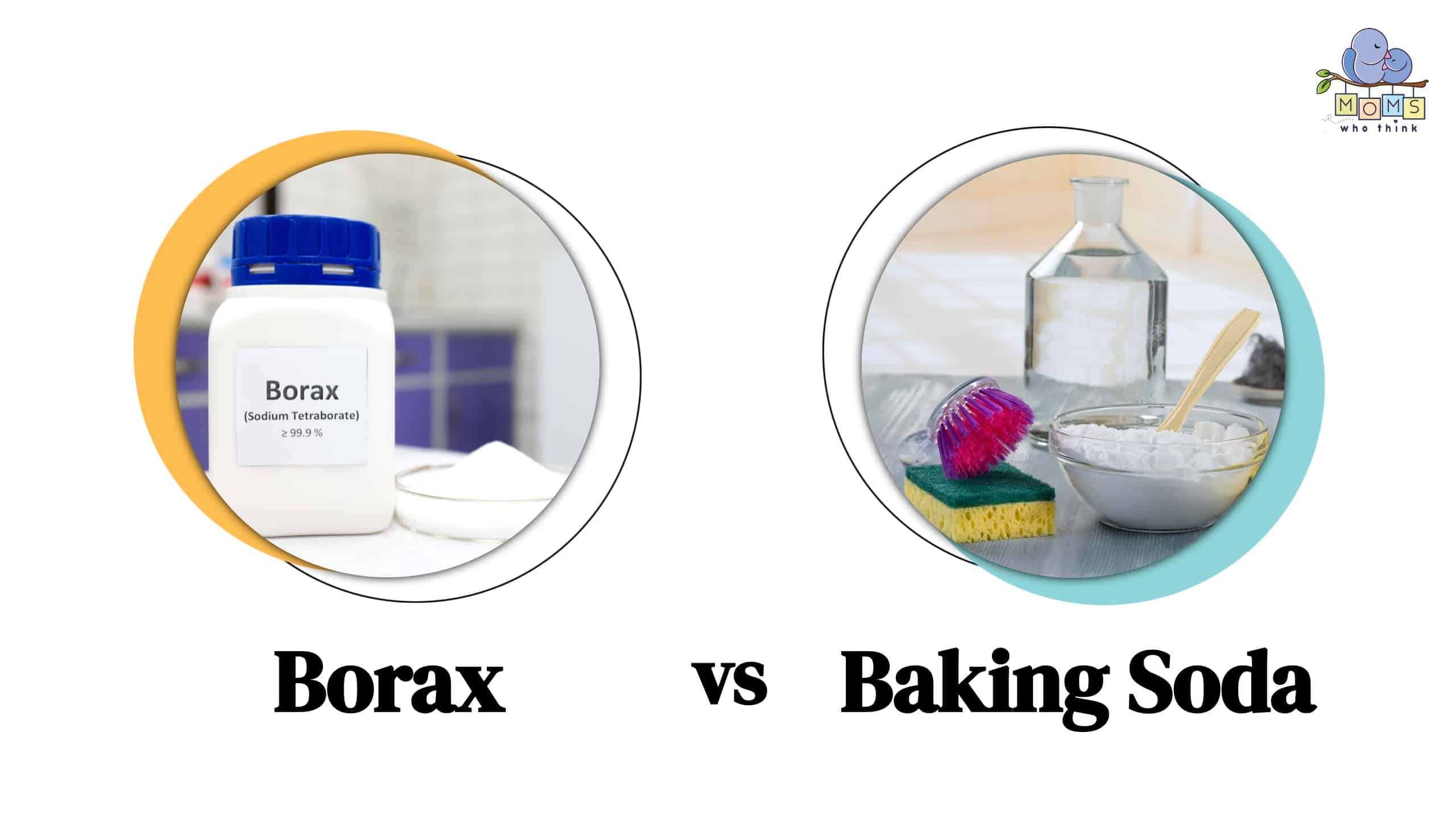

Baking Soda vs. Borax: When to Use Each for Cleaning
Home cleaning and laundry are some of the must-do activities in the house. Cleaning essentials are vast, making you spoilt for choice. Some are made with harsh chemicals, while others are costly. Several affordable products like baking soda and borax exist to get the job done at an affordable rate. You may be familiar with these items, which have existed for over 100+ years, or even get confused since they appear similar!
These products are great choices, and we'll see more about them below; what they are, their differences, history, functions, and more.
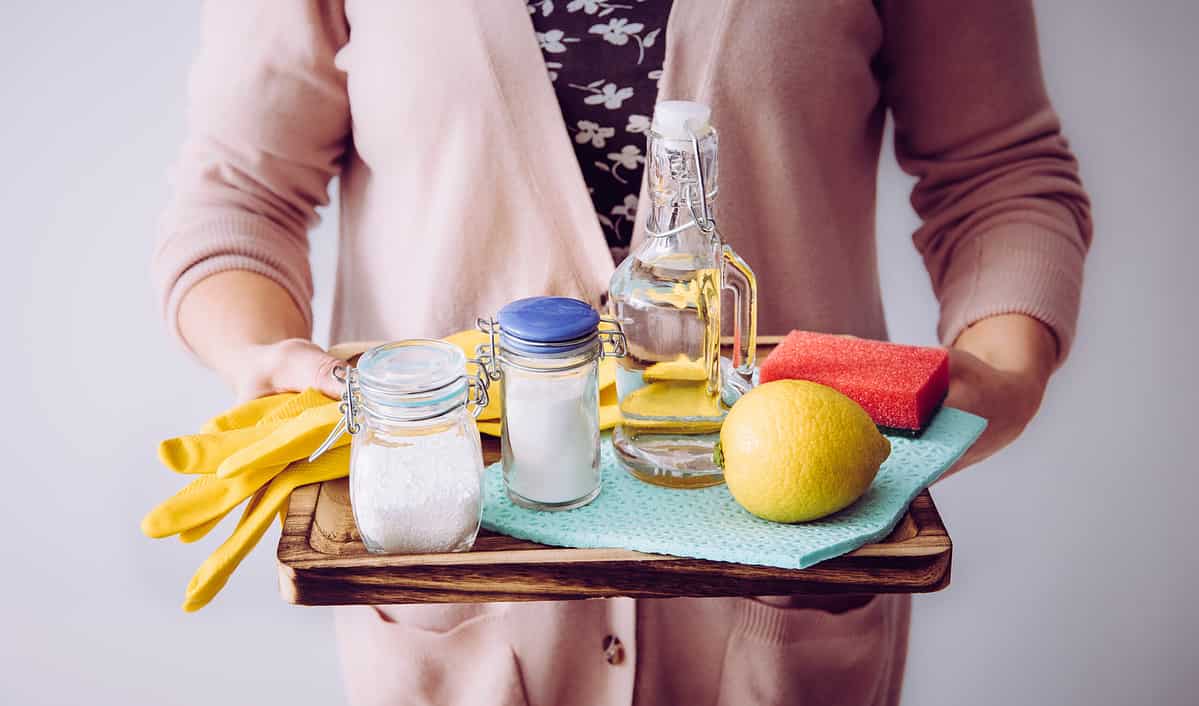
©FotoHelin/Shutterstock.com
Baking Soda vs. Borax: How Different Are They?
The key difference between baking soda and borax is that baking soda is food-grade and safer to use around pets and children, while borax is not food-safe and should be used with caution around pets or children.
Borax is effective in areas like laundry, where it removes stains and odors well, and in the bathroom where it's excellent at cleaning toilets. Meanwhile, baking soda can be used more in areas like the kitchen where it's great at cleaning sinks and ovens. If you're trying to visually identify the differences between the two, baking soda looks like white crystals whereas borax is a white solid.
Overall, borax is more alkaline than baking soda, with a pH of 9.5 versus 8 for baking soda. While this makes borax an effective cleaning agent it also comes with more risk of being harmful if swallowed.
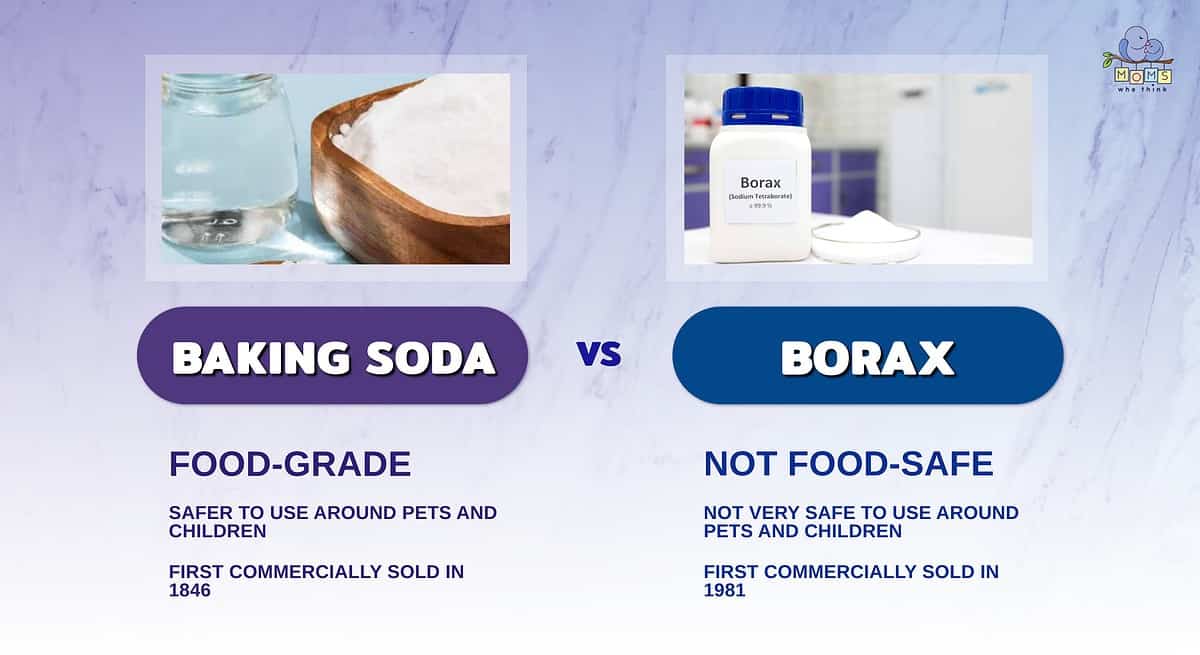
What is Baking Soda?
Baking soda has been around for many years. People used it commercially for the first time in 1846, and it is still a good ingredient. It is a naturally occurring salt, also known as sodium bicarbonate. This chemical compound is crystalline in raw form, but in our homes, stores, etc., it's an odorless white powder with multiple functions.
If you mainly know it for cooking and making cakes and muffins rise, add cleaning to your list, as it's ideal for two reasons. First, its alkaline nature makes it work well with acidic items such as smells and odors. Pouring some baking soda into your fridge will neutralize all the foul odors and leave it smelling fresh. Second, it's a mild abrasive, good for cleaning items that require gentle scrubbing.
Aside from its uses around the house, baking soda greatly benefits your health. Some foods we ingest cause inflammation and increased acid levels in the stomach. As an alkaline element, baking soda acts a natural antacid to lower acidity and relieve heartburn and indigestion problems. It's also good for the skin. It helps treat acne and other skin issues naturally. However, take great caution when using it as it can irritate or bring discomfort if used excessively.
What Are Natural Baking Soda Sources?
Baking soda is a chemical compound in nahcolite, a natural mineral. It's available in several natural sources. One primary source is Colorado's Eocene-age Green River Formation, Piceance Basin. Nahcolite accumulates as beds when the basin experiences high evaporation. It is then mined using longwall, bore, and drum mining methods. Another technique uses the cooling crystallization method, where boiled water is pumped into the nahcolite beds to crystallize dissolved nahcolite.
What is Borax?
Borax came into existence in 1881 in Death Valley, but didn't become commercial until 1981. Like baking soda, borax is a natural salt known as sodium borate, disodium tetraborate, or sodium tetraborate. It's also white and odorless in powder form, but don't mistake it for baking soda. Most are mined from Turkey and California's dried-up or seasonal lakes. If ingested, it's poisonous and potentially lethal, so use it carefully and keep it away from kids or pets. Always dilute the powder before use to maintain safety.
The primary function of borax is cleaning. It works well as a cleaning agent because of its alkalinity and mild abrasiveness. You can clean multiple areas, including carpets, the drain, the dishwasher, and pipes, remove rust stains, and so on. Borax has antifungal, antibacterial, and antimicrobial properties, giving it an advantage over other cleaning agents. It helps kill weeds and bugs, especially within the home.
What Are Natural Sources of Borax?
As mentioned earlier, the primary natural sources of borax are seasonal lakes. Scientists discovered the mineral compound in various regions ranging from the Southwest US to the Atacama Desert in Chile. Other areas are Tibet, Bolivia, and Romania. However, only a few places, like Boron, California, Turkey, and Searles Lake in California, have significant amounts of deposits that industries can commercially mine.
Can You Mix Baking Soda and Borax?
Baking soda and borax are great cleaning agents that can function independently. Each has its power, though borax proves to be more powerful. Mixing both ingredients to create a potent solution that removes tough stains is okay. Prepare the solution by combining a teaspoon of baking soda with a teaspoon of borax. Mix them well and pour them into a glass of hot water while stirring to help dissolve the powder. You can put the solution in a spray bottle to spray on a stain or an open container, using a cloth or sponge to push the liquid into the stain.
Alternatively, clean stained-filled laundry by filling a bathtub or basin with water, then add baking soda, borax, and laundry detergent. Leave the clothes to soak for 20-30 minutes, then clean them as usual. The mixture breaks down all stains leaving the laundry fresh, clean, and germ-free. When washed carefully, the method suits items like towels, linens, bedsheets, and other clothes.
Benefits of Using Baking Soda for Cleaning
Baking soda is a great non-toxic alternative to harsh chemical cleaners that can be used for numerous cleaning tasks. It is a naturally occurring sodium bicarbonate that has many beneficial properties, such as being an effective disinfectant and odor absorber, making it an ideal choice for kitchen and bathroom surfaces.
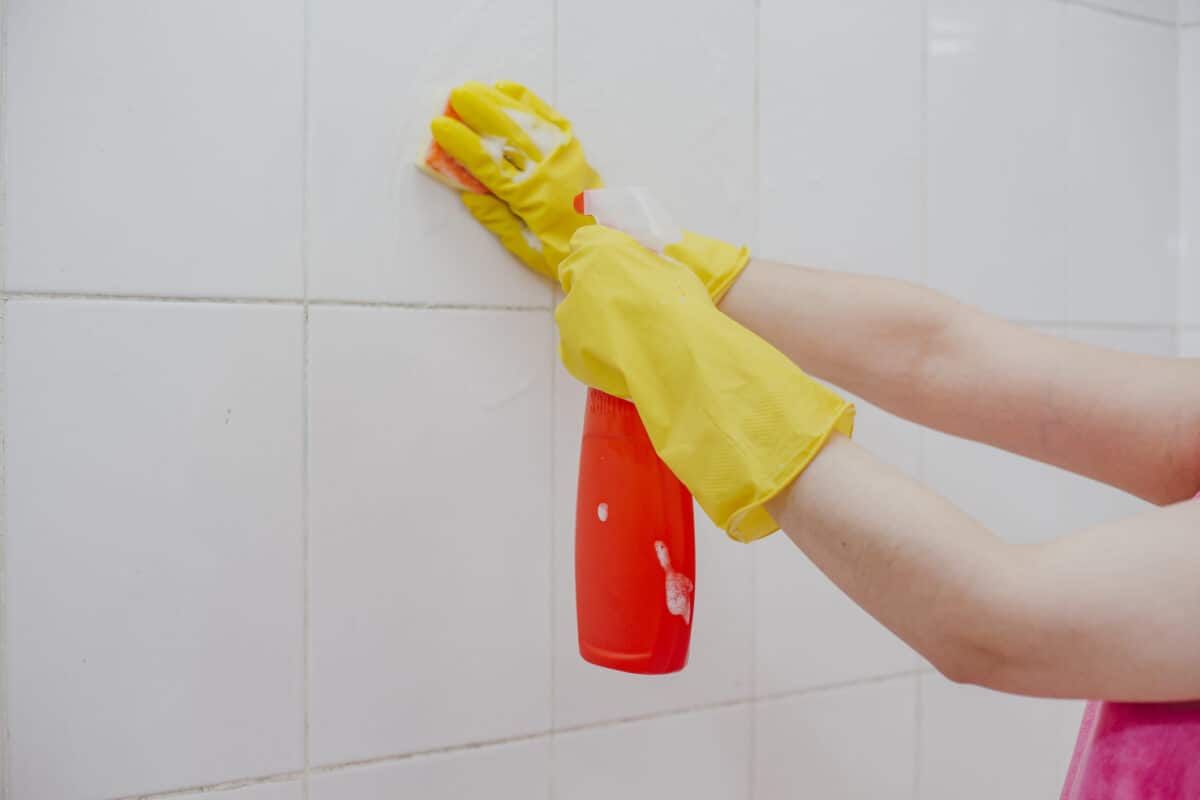
©iStock.com/golibtolibov
Additionally, its mild abrasive action can help scrub away dirt and grime without damaging surfaces. Baking soda is also more cost-effective than other cleaning options since it can be used repeatedly and stored for future use. Compared to cleaning with vinegar, baking soda does not have the same acidic properties so it won't damage surfaces. It also won't leave behind a strong odor.
What Are the Benefits of Using Borax for Cleaning?
Using Borax as a cleaner is great for a variety of tasks due to its all-natural, boron-based compound. Known as sodium tetraborate decahydrate, this natural cleaner is incredibly versatile and can be used for everything from stain removal to general cleaning. It is also non-toxic and safe around children and pets, making it an ideal choice for households. Borax also has some disinfectant properties, which makes it an excellent choice for sanitizing bathrooms and kitchens.
Using Baking Soda and Borax for Cleaning Purposes
Baking soda and borax are two of the most versatile cleaning products that you can find around the house. Baking soda is a natural cleaner that can be used in a variety of ways, from deodorizing carpets to scrubbing away tough stains. While borax has many uses as a detergent, it's also great for removing mold and mildew, as well as being an effective all-purpose cleaner.
Both baking soda and Borax are much safer to use than chlorine bleach or other harsh chemicals, making them ideal for cleaning around your home without worry. So the next time you're looking for an all-purpose cleaner for your home, reach for these two ingredients.
Tips and Tricks for the Best Cleaning
When it comes to cleaning using baking soda and borax, there are some tricks that can help make the process much easier. Knowing the best way to clean with one or both of these agents can help save time and ensure a spotless finish every time. Here are some helpful tips and tricks to make the best use of both agents for cleaning purposes:
- Use a combination of chemical-based cleaners along with physical scrubbing
- Don't be afraid to get creative in your approach to cleaning
- Use microfiber cloths or sponges for more effective results
- Rotate between different cleaning agents to ensure no residue is left behind
- And lastly, always follow the manufacturer's instructions for best results.
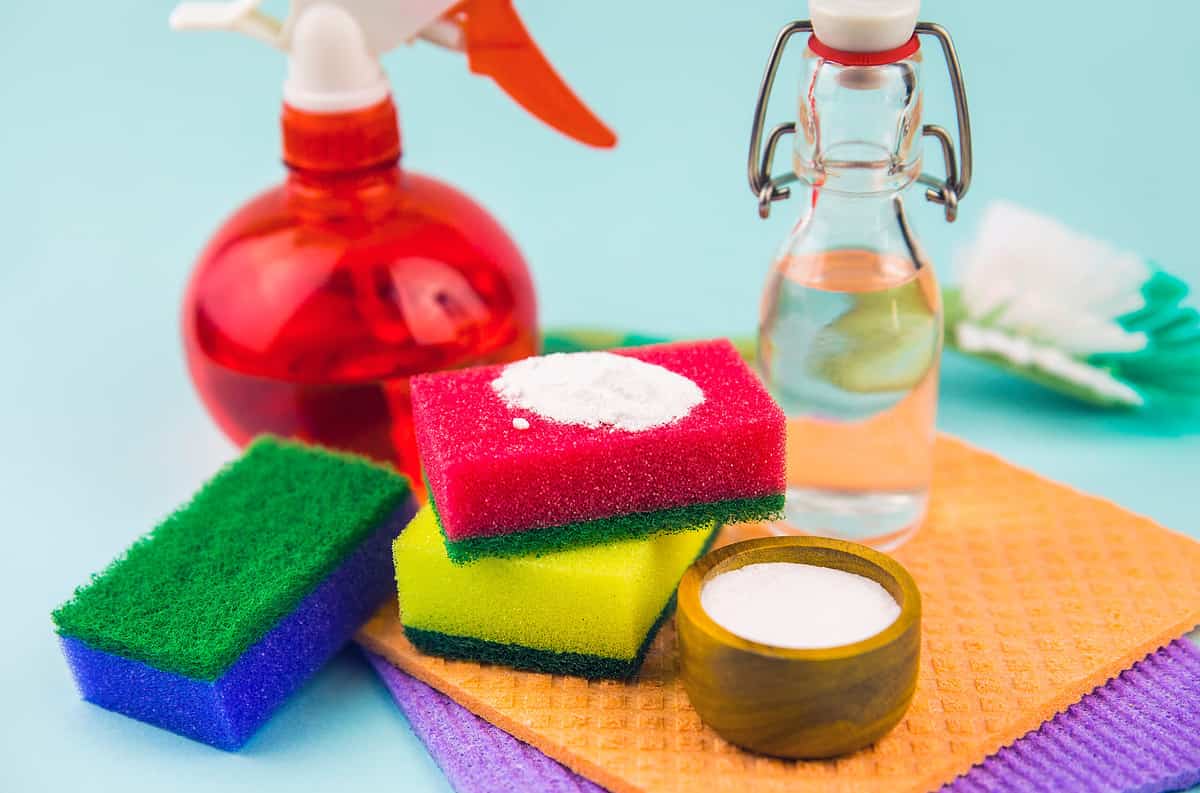
©FotoHelin/Shutterstock.com
Substitutes for Baking Soda and Borax
People often replace baking soda with baking powder. It has similar effects when cooking and less in cleaning. For borax, users have found several substitutes due to safety and health concerns. Among them is baking soda which we've expounded on above. Others include:
Laundry Vinegar
Vinegar is a harmless ingredient that eliminates odors from spaces or clothes. It acts as a deodorant or a spray. You can also use it in your washing machine for freshness and fabric softening during laundry washing.
Greener Cleaners
Borax can cause nausea and vomiting when ingested. So, the last place you want to use it is the inside of your fridge. Though it's one of the best cleaners, safety comes first. Greener cleaners like lemon and lime spray are biodegradable, safe, and non-toxic, so you can eat every food in the refrigerator without worry.
Safety Measures When Using Borax Around Pets and Children
When using borax for cleaning purposes, it is important to take measures to ensure that no harm comes to children or pets. It is recommended to keep all children and pets away from the area where borax is being used and to store borax in a secure place that is out of reach of children and pets. Additionally, dust particles should be minimized so as to reduce inhalation risk. It is also recommended that people using borax wear protective gear such as gloves, glasses, and masks, and clean their hands thoroughly after handling borax.
Finally, it's important not to mix borax and bleach since the two will react with each other and create potentially toxic gases. In instances of accidental inhalation of borax fumes, it is recommended to rinse the mouth and nose with water. For individuals who are sensitive to borax, it is possible to be allergic to it. Signs of an allergic reaction from using borax include:
- Hives
- Redness around the eyes and throat
- Nausea
- Vomiting
- Lightheadedness or dizziness can increase with continued exposure.
Symptoms of an allergic reaction can also manifest as a rash or difficulty breathing. In such cases, it is recommended that people stop exposure and seek medical treatment immediately if necessary.
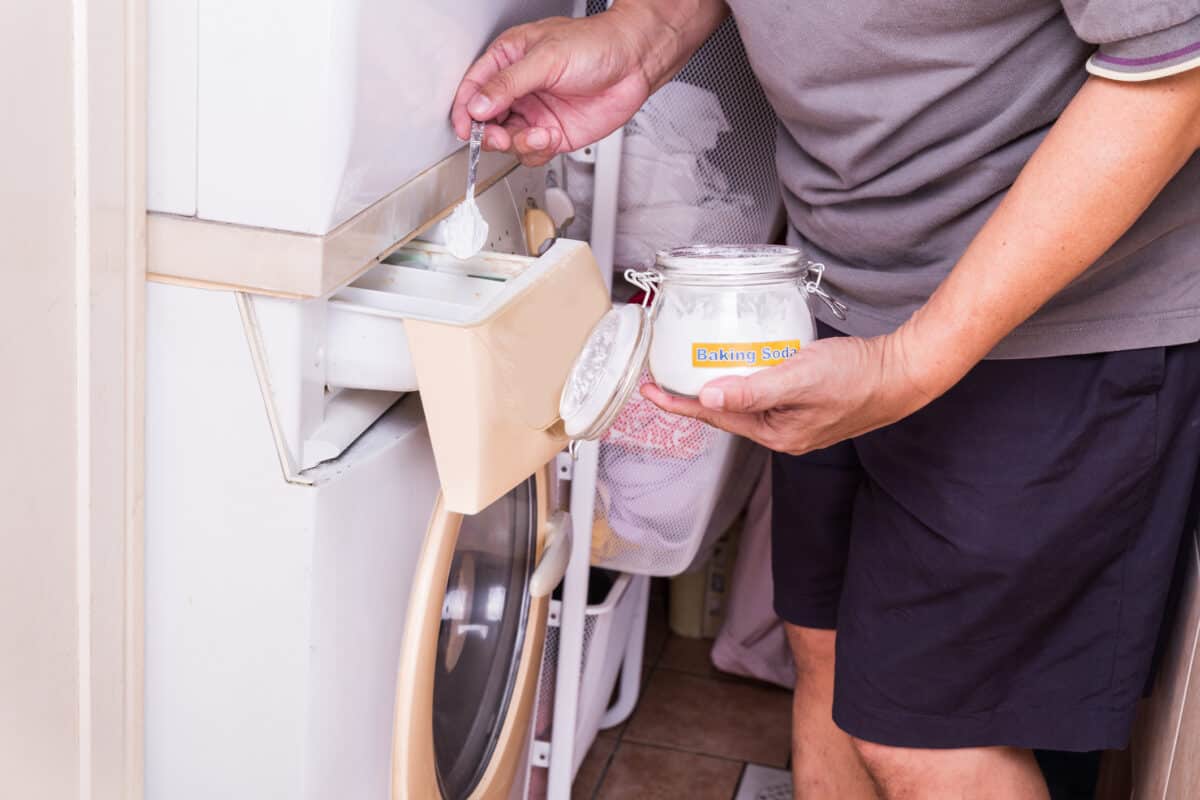
©iStock.com/ThamKC
Storing and Disposing of Borax
Unlike baking soda, which is practically harmless, when using borax it is important to understand how to store and dispose of it correctly. Proper storage of borax helps minimize the risk of exposure to people, animals, and the environment. Additionally, proper disposal methods are essential to prevent contamination of the environment with this hazardous material.
To properly store and dispose of borax safely, ensure that all containers are labeled clearly with the date when they were opened or mixed, and keep them in a cool place away from food items or water sources. Additionally, make sure to use protective gear such as gloves and masks when handling it directly.
Finally, when disposing of borax, mix it with a large volume of water and scoop it into the toilet. When using borax, it is important to understand how to store and dispose of it correctly.
Baking Soda vs. Borax: Cost
Many families are concerned about the rising cost of groceries nationwide. If you're already stretching your monthly budget thin, then you'll be interested to know if there are significant differences in the costs of baking soda and borax.
On average, baking soda costs anywhere from $.65 to $3 for a 16-ounce container The large price range comes from some brands offering pure baking soda, with no added chemicals. If you want the purest baking soda around, you'll need to be willing to pay the price.
Borax usually costs $3-4 for a 55-ounce box, with a 65-ounce box costing around $5. This makes borax comparatively cheaper than high-end baking soda, since you're getting a lot more for your money. The cheapest baking soda, however, is going to be more cost-effective than borax. If your budget is extremely thin, going with baking soda is the better choice. If you have the room in your budget, either option is sensible depending on your cleaning needs.
Final Words
- Baking soda is considered food-grade, meaning that it's safe to use on items and surfaces that come in contact with food. Borax is not considered food-safe.
- Borax can be lethal if ingested, making it unsafe to use around children and pets. Baking soda is considered safer to use around kids and pets. If you have kids, make sure they understand the dangers of Borax and keep it in an out-of-reach location when not in use. If you have pets, keep them away from areas where Borax has recently been used and keep the box out of reach.
- Baking soda has been commercially sold for a lot longer than Borax.
Baking soda and borax are two similar yet different chemical compounds. Baking soda appears as white crystals, while borax is a white solid. They have excellent cleaning power since they are both alkaline and abrasive. However baking soda is safer than borax, but the latter is tougher and more effective.
Always use baking soda and borax with great caution and you can expect the most perfect results every time!